Cameroon
Thirty-one-year old Souleman Nsangou sells coffee in the bustling streets of Cameroon’s economic capital, Douala.
Nsangou comes from Foumban, a city in the north west known as the epicenter of coffee production in the country.
Cameroon, one of central Africa’s largest economies, produces around 20,000 tonnes of coffee a year but only about 10 percent of the coffee is sold on the local market.
The country has seen its coffee output decline for decades partly due to low investment and poor agricultural practices, which have affected coffee prices.
“I sell Cameroonian coffee as well as imported coffee, but the majority of my clients prefer imported coffee because it’s cheaper than locally made coffee. It’s only those with financial means who can consume Cameroonian coffee,” he said.
As Cameroon heads for polls on October 7 to decide who will captain the country for the next 7 years, Nsangou is amongst a growing population of young people calling for a change from the 36-year rule of incumbent President Paul Biya.
Nsangou takes home between 5 – 10 US dollars a day from his sales.
He says the country is ready for new blood; a president who would revitalise the economy.
“I will vote for Garga Haman, because a lot of things will change with him, such as healthcare, education and roads. Because we have no roads in Cameroon There are no schools. When you go to hospital. It’s difficult to get easy healthcare, especially for us poor people,” he said.
Nine candidates including Biya will be on the ballot in October.
According to the International Monetary Fund (IMF), Cameroon’s economy is expected to grow 4 percent this year, up from 3.2 percent in 2017 due to the start of natural gas production and construction work for an upcoming soccer tournament.
The IMF warned, however, that the economy faces considerable risks, including deteriorating security in its English-speaking regions – cocoa and oil-producing areas where separatists are waging a deadly insurgency, and high debts.
Reuters




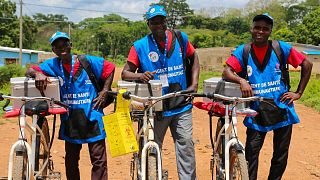
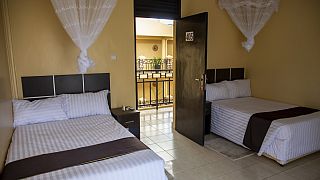
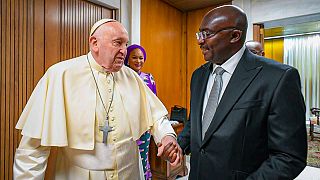
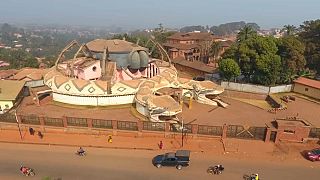


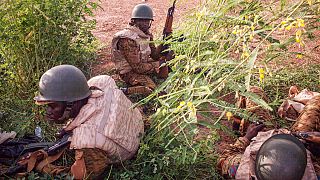
02:02
Cameroon: Football fans react to the controversy over appointment of new coach
01:46
Boxing: Francis Ngannou 'destroyed' by Anthony Joshua in two rounds
Go to video
Boxing: Britain's Anthony Joshua vs Cameroon's Francis Ngannou
01:11
Malaria: Africa's most affected countries commit to end deaths
Go to video
Boxing: after Fury, Ngannou ready to face Joshua
01:05
Cameroonian prosecutors wind up probe into the murder of Martinez Zogo